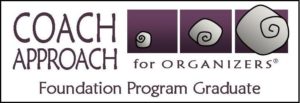I needed to have what I perceived to be a tough conversation with a health care provider recently. I wanted a specific course of treatment that I wasn’t sure she was going to be in favor of. I did the research to support my request, but still worried and fretted over that upcoming conversation for the better part of the week. When I actually had the conversation, there was no push-back from the health care provider at all. She was fully in support of my request and was more than willing to prescribe what I’d requested. All that worry was for nothing.
How can you ensure your tough conversations go that well?
1. Do the research: If you want the outcome of a tough conversation to go your way, do the research.
- Want a raise? Be ready to explain why you deserve it. What have you done to contribute to the bottom line? What are comparable employees in similar industries being paid?
- Want a better deal with your cable company? Know the current price of comparable packages and be prepared to explain how long you’ve been a valued, pay-on-time customer.
- Want a prescribed treatment plan? Detail the reputable resources you utilized to come to your decision about the treatment plan and why you believe it will work for you. Starting the conversation with “this guy on one of my blog sites said I needed to do this” may not be your best lead.
2. Know what you want:
- If you want a raise, be specific. “Based on the information I’ve provided I deserve an extra $5 per hour” is much better than “I want a raise.”
- If you want a better cable deal, saying “I see your bundled package for new customers is $125/month. How can I get that same deal?” is better than “I need you to reduce my monthly bill.”
- If you want a different prescription, say “I would like to try Adderall because I understand the side effects are less severe than Concerta.”
3. Be polite: No matter what you are requesting, it is better to be polite than confrontational. Keep a calm tone of voice, call the person you are speaking to by name, don’t argue, say please and thank you.
4. Talk to the decision-maker: If you aren’t happy with the response you received, ask to speak to a supervisor. Understand that each person has a prescribed level of authority and if they can’t give you what you are asking for, possibly the next person up the line can.
5. Write a Thank You note: If it makes sense, write a thank you note to the person or company that has been of assistance. The power of a thank you note cannot be overstated.
Cindy Jobs, COC, ACC
Looking for more information?
Click here for 15-minute organizing tips.
National Association of Productivity & Organizing Professionals, Seattle Chapter
National Association of Professional Organizers, Seattle Chapter Vice President
Certified Organizer Coach
Institute for Challenging Disorganization
Level I Certificates earned in Chronic Disorganization; ADD; Client Administration; Time Management; Mental Health; and Hoarding.
Level II Specialist Certificates earned in Chronic Disorganization and ADHD.








